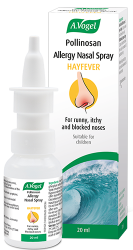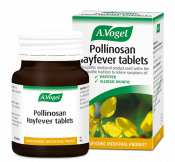Choosing a destination

You may have found a great package holiday deal but, as an allergic rhinitis sufferer, you must consider more than just the price when choosing where to take your holiday.
Cities
If pollen triggers symptoms like itchy skin and congestion, it’s best to avoid travelling when counts are high – usually between March and June. Also, if you’re thinking of going on a city break, high pollen counts, coupled with pollution, can make symptoms more extreme.
So, if you wish to visit the likes of London, Berlin or Amsterdam, as an allergic rhinitis sufferer it’s better to go off season if you can. The good news is that it’s usually cheaper at this time anyway!
See my blog ‘Can pollution make allergic rhinitis worse?’ for more information.
Coast
If you’re a beach lover and an allergic rhinitis sufferer then here’s some great news – destinations on the coast tend to have lower pollen counts. So, whether it’s Cornwall or Amalfi, you can enjoy being by the sea without exasperating your symptoms.
Picking your accommodation

With the destination sorted, next up on your holiday ‘to do’ list is accommodation. However, once again, as an allergic rhinitis sufferer there are a few extra things you must consider when making a booking.
Allergy-friendly rooms
First off, find out if there any allergy or asthma–friendly rooms available. These are increasingly common in large hotels and will help to reduce the chances of mould spores, dust mites or animal dander causing problems whilst you’re away.
No-smoking
Before booking, ensure your room is non-smoking or, better still, that it’s a smoke-free hotel. If not, the smoky air created by previous occupants could bring out coughing and watery eyes.
Pet-free
If animal dander brings out your allergic rhinitis symptoms, make sure you choose a pet-free hotel.
Distance from pool
When mould triggers your allergic rhinitis and the hotel has a pool, ensure your room is away from this area.
General holiday prep

Before you venture off to the far corners of Spain or Italy, or wherever your chosen destination is, as an allergic rhinitis sufferer you must be extra prepared for what’s ahead.
Plan ahead
First of all, even if your allergic rhinitis hasn’t flared up, start taking your medication around one to two weeks before you go on holiday. This means your body will be in the best place to fight off allergens should you come into contact with any on your travels. Also, ensure that you have enough medication for more than the duration of the holiday should your symptoms get particularly bad.
Cover all eventualities
Allergic rhinitis can affect us in many different ways so, if you don’t want to be caught out on your holidays, it’s best to cover all eventualities in terms of the treatments you take. Make sure you’ve got treatments for skin trouble, nasal problems and irritation around the eyes. It’ll only interrupt your trip for example, if your eyes begin to water, itch and stream and you haven’t got any eye drops with you. Some Moisturising Eye Drops are handy to include in your toilet bag as they will see to any of these problems.
Packing medication
Next up, pack your medications in your hand luggage, provided they are under the limit of 100ml. This means they’ll be nearby should you need them at any point in your journey.
If you are heading abroad, it’s also a good idea to keep your medication in its original packaging. There shouldn’t be any problems getting your allergic rhinitis treatments through customs but on the off chance that you get any queries, it’s handy to have the box there to explain what it is.
Triple check meds!
This one’s important - double and triple check that you’ve packed your medications, whether that’s nasal sprays, antihistamines or eye drops. After all, you don’t want your holiday itinerary to be interrupted by a visit to the local pharmacy!
Check pollen counts
I tend to think that a bout of allergic rhinitis feels particularly bad if you’re taken by surprise so, to avoid the sudden onset of sniffles or sneezing whilst on your sun lounger, check the pollen count before you leave! If you’re heading somewhere in the UK, our website provides a five day pollen forecast for most towns and cities. However, the internet also contains pollen counts for other, perhaps slightly warmer, destinations in Europe and America.
Packing List

As I’m sure you are aware, when the immune system detects an allergen it releases histamine in an attempt to push it out. This increases blood flow to the affected areas and as a result, makes them more sensitive. This means that during a flare up, your essential holiday toiletries such as sun cream, insect repellent and after sun could irritate your skin.
So, to help you pack for your next trip away, I’ve put together a handy packing list for allergic rhinitis sufferers. There will be no forgetting anything important this time around!
- Sun cream – this is essential for all summer holidays but unfortunately, as the skin is more sensitive when suffering from allergic rhinitis, sun cream can cause irritation. Therefore, I’d recommend you choose a more natural sun cream for your holiday.
- Wrap-around sunglasses – not only will these shield you from the sun's damaging rays, if pollen triggers your symptoms, they will also help to prevent the allergen from irritating your eyes
- Insect repellent – this is another product that can irritate the skin, eyes and nose so, as always, natural is best! Our Neem Insect Repellent can be used by those sensitive to conventional insect repellents as it does not contain DEET
- Allergy-proof pillow covers - if you use these at home, it’s worth putting a couple in your case to limit the effects of dust mites whilst you’re away

- After sun – as with sun cream, this has the potential to exasperate allergic rhinitis symptoms so rather than using traditional products, you could try our Soothing Neem Cream. This is suitable for those with sensitive skin and helps to calm irritation, as well as redness caused by the sun
- Lots of clothes! – pollen can attach itself to your clothing whilst you’re out and about so if this allergen causes you problems, ensure that your case contains lots of clean clothes so that you can change when you return to your accommodation at the end of the day
- Allergy-friendly toiletries – in my blog Beauty tips for allergic rhinitis sufferers I put together a range of cosmetics, creams and masks that are less likely to worsen allergic rhinitis symptoms, including Salt of the Earth's Pure Aura Melon and Cucumber Deodorant,
- Medication – it will only ruin your holiday if you forget to put these in! I’d recommend you include some Pollinosan Hayfever Tablets as these are made from seven tropical herbs and address a whole range of symptoms like watery eyes, congestion and sneezing.
- Make-up – the likes of PHB and Dr Hauschka offer whole range of cosmetic products that are suitable for allergic rhinitis sufferers.
- And the rest – swim wear, flip flops, sun hat…
Road trips

Your vehicle can be a source of allergens like dust mites and animal dander so, to ensure your journey is as comfortable as possible, here’s some advice on travelling by car if you’re an allergic rhinitis sufferer.
Clean
Make sure you give your car a good clean before you leave for your holidays in order to get rid of any allergens like mould spores and dust mites. Click here for more information on cleaning with allergic rhinitis.
Travel time
Traffic and pollution levels are lower early in the morning and late in the evening so if you can, travel at this time to avoid exasperating your allergic rhinitis symptoms. The journey will be quicker too so it’s a win-win situation!
Air con
In the car use the air conditioning instead of rolling down the windows to prevent pollen from getting in the car. Turning on the air con also helps to remove mould and dust mites should these cause you problems.
Also, circulate air inside the car rather than using the outdoor vent setting as again, this will prevent allergens like pollen from getting in the car.
Picnic
As I discussed in my blog ‘7 food and drinks that could help allergic rhinitis', diet has a huge part to play in the severity of your allergic rhinitis symptoms so if you’re packing a picnic for the car, make sure to include lots of allergy-friendly foods like fresh fruit and vegetables. A raspberry and blueberry smoothie can be placed in a bottle and then a chill bag so makes the perfect tasty car snack.
Plane travel

Finally, if you’re lucky enough to be venturing off on a plane journey any time soon, as an allergic rhinitis sufferer there are a few things to remember.
Nasal spray
The air on planes can be really dry which can worsen a runny nose, congestion and sinus pressure. Therefore, keep a nasal spray in your hand luggage should you need help in relieving any of these problems. I’d recommend the Pollinosan Luffa Nasal Spray as this cleanses and soothes the nose to make it feel more comfortable.
Skip the alcohol!
Duty free, unlimited refills, the trolley with all sorts of drinks to choose from – it can be incredibly tempting, and easy, to drink your way through a few alcoholic and caffeinated drinks on your plane journey. However, alcohol and caffeine both dehydrate you and contain high levels of histamine which will increase allergic rhinitis symptoms. I won’t take away all the fun from your holiday and advise you to cut these out of your trip however, if you can, at least avoid them on your journey.
Stay hydrated
Water is excellent when suffering from allergic rhinitis – it loosens mucus to help it flow more easily from the nose and it keeps you hydrated. So, as you journey across the sky, make sure you have plenty at hand.
Allergic rhinitis can at times be frustrating but with these simple tips you’ll be able to enjoy your holiday without letting it get the better of you!










